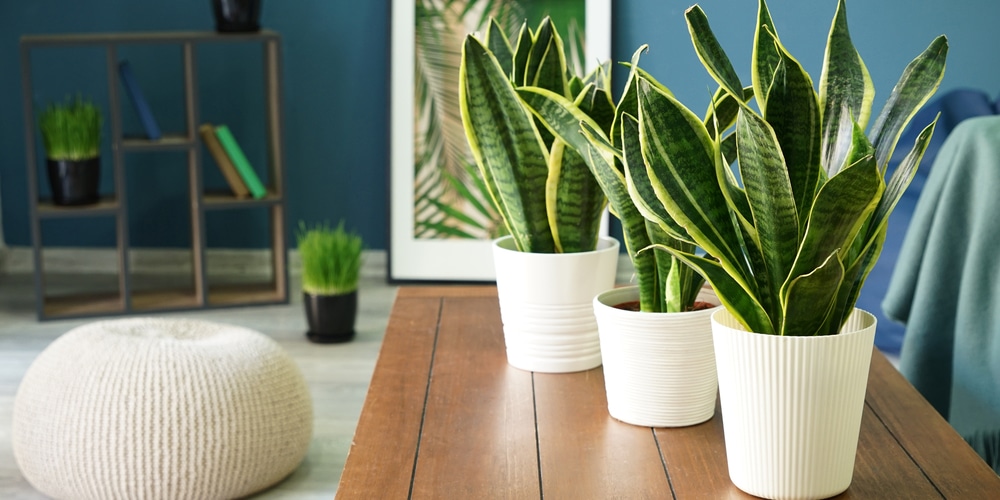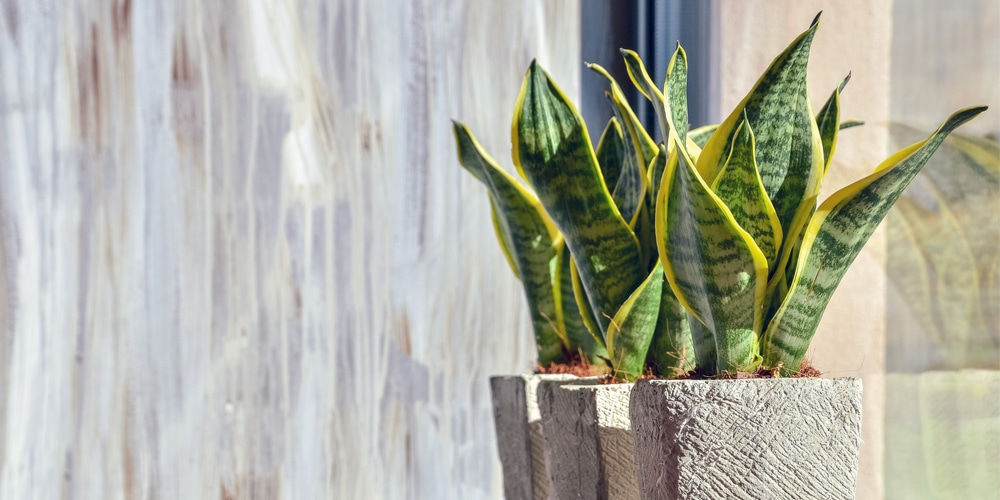Snake plants make terrific houseplants. They grow well in containers, don’t need a lot of sunlight, and help purify the air around them. Owners find them easy to care for, so they also make good starter plants.
That being said, all plants thrive most in ideal conditions, including giving them the right kind of soil. Below, read about what type of soil snake plants prefer for indoor and outdoor propagation.
Soil Conditions for Snake Plants
Proper plant care is about more than regular watering. Because most cultivated plants don’t occur naturally where you want them to grow, it’s your job to create the best conditions possible to help them thrive.
Plants make their food from three primary sources: sunlight, water, and resources from the soil. That’s why all plants need the correct type of soil conditions. This includes hardy plants like snake plants.
Drainage and Texture
Snake plants prefer light, well-drained soil. Their roots can’t reach through thick, dense dirt. If the roots can’t grow, they can’t access more of what the plant needs to grow and gather more sunlight.
Keeping the texture light isn’t just about the type of soil. It’s also about how you prepare the pot and plant the seedling. If you put too much ground in the pot or pack it in too tightly, the roots won’t be able to make their way through the dirt.
In addition, very dense soil doesn’t drain well, and snake plants need good drainage. Like many plants, snake plants are prone to root rot. Root rot is a general term for infections that attack roots that sit in water too long.
If you plan to grow your snake plant in a pot, be sure that it will drain properly. At the very least, it needs to have a hole or holes in the bottom. When you buy it, check the label and ensure that it states explicitly that the plant will drain in the pot.
If you want to grow snake plants in your yard, you can use simple instructions to test your soil drainage. There are also things you can do to improve your drainage and irrigation if you discover that it’s poor.
Preferred pH
Another critical aspect of soil health is pH. The pH measures the level of acidity in the soil. The pH scale goes from one to 14, with seven being neutral (pure water has a pH of seven).
Snake plants prefer neutral soil or one that is slightly acidic soil. The preferred pH for snake plants is about 5.5 to 8.5 (slightly acidic to slightly basic or alkaline). The good news is that most common potting soils have a fairly neutral pH. Therefore, you can use standard potting or gardening soil for your snake plant.
Using Soil To Prevent Pests and Diseases and Promote Health
Plants of all kinds require ongoing maintenance to continue to thrive, even sturdy ones like snake plants. Fertilizing the soil is one thing you can do to promote good health in all your green friends.
Snake plants like neutral soil, and they don’t flower so you can use any standard fertilizer. Make sure you choose according to where your snake plants live, either in a pot or the ground. If you want to promote robust growth, choose a fertilizer with high nitrogen content, which facilitates the development of the leafy parts of plants.
The Best Snake Plant Soil
Snake plants require little maintenance and make terrific additions to workplaces, classrooms, and homes. If you give them the basics of what they need, you’ll have an air-purifying plant for many months. You can also provide your snake plant with some fertilizer every now and again.

